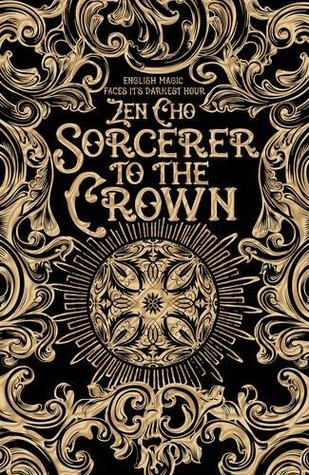 Sorcerer to the Crown, Zen Cho
Sorcerer to the Crown, Zen Cho
Received to review via the publisher
I was really excited to get my hands on this one, and confess I begged rather through whatever medium I could think of. So much glee when I did get it! It wasn’t strictly on my reading list for this month, but I figured I had to behave myself and read it right away, especially since my reviews can be somewhat delayed in posting. This was not at all a hardship, except in that I kept getting distracted from my paid freelance work to a) read it or b) flail about it.
If you’re seeing the comparison to Susanna Clarke and thinking “oh no”, you may not be much reassured to know that I liked this, considering that I consider Jonathan Strange & Mr Norrell to be an amazing piece of work. However, I’m not insensible of the criticisms people have had of that book, and the Georgette Heyer comparison is perhaps more apt in terms of tone and style. The plot might be rather Clarke-ish — the issues with English magic, the requests of the government for help in war, issues of imperialism and slavery, and of course commerce between the lands of Fairy and our own — but the tone is more like Heyer, and the writing rather lighter than Clarke’s in JS & MN. My only issue with the writing is that sometimes it seemed a bit too stilted: “do not you [x]” was not as common a construction in actual Regency times as used here, I think. Something struck me as wrong, in any case, though I confess that I haven’t particularly examined Austen and Heyer too closely on their syntax, and this is just my kneejerk reaction as someone who reads a lot from all periods.
The story itself is fun. I quickly began to suspect aspects of it, but didn’t put everything together until the end, and there were one or two things that caught me out. The love story is sweet: the realisation that there’s something there is fairly swift, but actual action and resolution of it isn’t, so it avoids feeling too easy. There’s some beautiful writing here — lovely images, lovely meditations on relationships between characters. And of course, it can’t help but meditate on colonialism given Zacharias’ birth and adoption, Prunella’s mixed heritage, and Mak Genggang’s part in the story. It’s done sensitively, with an understanding that there may be great affection even where there’s also problematic elements (meaning mostly the relationship between Zacharias and Sir Stephen).
Most of all, you’ve just got to love Prunella’s sheer audacity. She’d give Heyer’s Sophy a run for her money, I think, and like her she’s also kind and concerned with others.
All in all, I enjoyed this a lot; the only real stumbling block for me was in it being compared to such giants as Heyer and Clarke, and in some of the language — mostly the dialogue, in fact — which didn’t sound right to me. I do recommend it, even if you couldn’t get on with JS & MN; it’s not the same sort of slow, measured narrative at all, and there are absolutely no footnotes (at least in the uncorrected proof I’ve received!). It’s also a stand-alone fantasy (or if it doesn’t, it is perfectly satisfactory as one), which I know some people (myself included) very much crave.
Rating: 4/5

I’m looking forward to this one so much!
It’s worth it!
I’m glad I’m not the only one annoyed by all the “Do not you”s. I guess it’s really just “Don’t you” without being shortened, but I’m so used to see “Do you not” when people want to sound slightly old-fashioned that the “Do not you” was just like a verbal hiccup.
When I read it, I wished that the main characters earned their successes a little more. Prunella seems to have been infused with an abundance of magic from birth without ever having to work at it, and she even spends most of the book resisting any attempts to study / practice / improve. It does not feel like anything in the book really challenges her. Zacharias, meanwhile, is a scholar at heart, and never really has to overcome his own flaws (a stubborn streak, aloofness, a complete lack of interest or willingness to engage others to get them on his side – he simply assumes everyone should be on his side because he’s right, and anyone who isn’t can be ignored. That’s the sort of thinking that didn’t serve Jon Snow terribly well…)
It’s a somewhat lazy way of being the good guys, to be inherently super-skillek. Like Superman or The Doctor…
I’ve never actually read “do not you” in dialogue in anything else, as far as I recall… It just seems so weird. But you’re right, “don’t you” must’ve come from somewhere. Hm!
Yeah, that makes sense as a criticism. Prunella really was just too special.